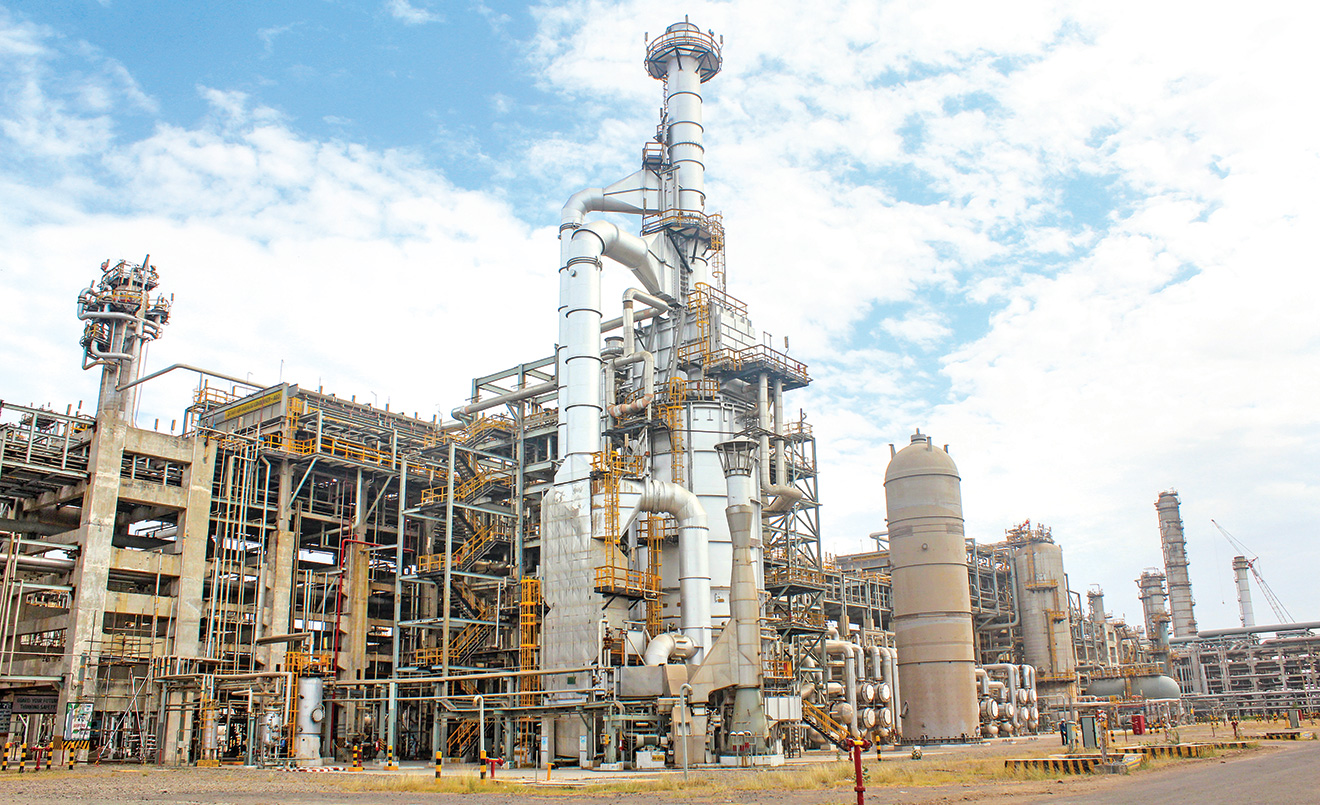a Net Carbon Zero Future
Reliance recognises that climate change poses a significant global threat. However, the Company also believes that prompt action can provide an opportunity to create a healthier, happier, secure, and more resilient future. Consequently, Reliance advocates urgent on-ground implementation of action to move beyond dialogue and commit to the global energy transition agenda. Based on this vision, Reliance announced its ambition to become Net Carbon Zero by 2035.
The Reliance Commitment
Reliance is leading the way in designing decarbonisation solutions to build a sustainable future for the Company and the nation by embracing new technologies and pathways to combat climate change. The Company is transforming to build and scale a comprehensive green energy ecosystem in India.
As one of the largest energy markets globally, India will play a pivotal role in transforming the world’s energy landscape. Reliance is focused on growing businesses of the future and making India a stronger economy by leveraging its strengths in finance, talent management, technology, and project execution capabilities. Reliance sees investments in renewables and alternative energy as a proactive step to ensure a sustainable tomorrow for future generations. The Company is pivoting its operations to play a more relevant role in the renewables and alternative energy space as they become the dominating constituents of the future power generation mix.
To achieve its ambitious Net Carbon Zero target, Reliance announced to:
Establish and enable 100 GW of solar energy by 2030
Invest in the value chain, partnerships and future technologies, including upstream and downstream industries
Build Giga Factories
to create and offer a
fully-integrated,
end-to-end renewable energy
ecosystem
Transform its business to Net Carbon Zero operation
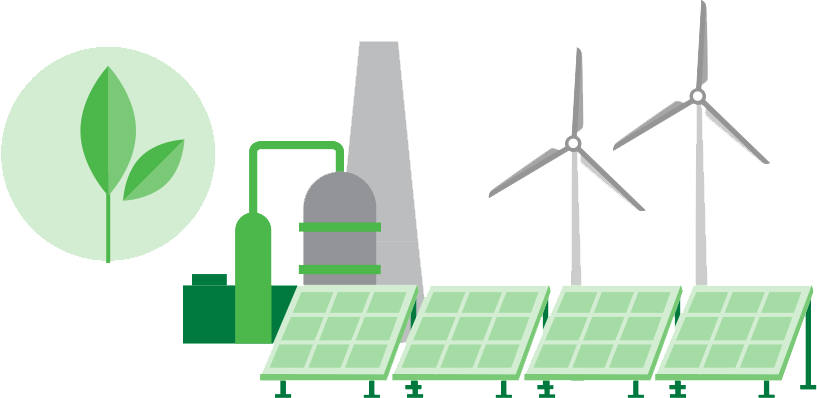
Net Zero Strategy
The sheer magnitude of Reliance’s Net Carbon Zero target makes the associated responsibilities as well as opportunities far more transformational and global in scope than anything the Company has ever done before. Reliance has a strong legacy of executing numerous projects that were unparalleled in scale and impact and pioneered transformational business models. However, the Company always believes in getting its first principles of business right.
Today, Reliance’s approach is no different, with foundational principles underlining the Company’s progress towards a 'Net Carbon Zero' future as outlined below:
- Hyper-integration: By
integrating scientific knowledge
with continuous technological
innovation to build and operate
truly integrated systems that deliver
hyper-performance; - Robust business model: By building a model that catches the irreversible upward curve in the demand for green, clean and renewable energy in India and globally; and the downward curve in the cost of their production;
- Scale: By improving the efficiency, performance and life-cycle of its assets and operations to achieve total system optimisation and economics
Reliance has made a strong start on the ambitious journey to become Net Carbon Zero by 2035. The Company envisions becoming one of the world’s leading New Energy and New Materials Company over a period of 15 years through a strategic focus on:
Clean energy
transition
Making CO2
a recyclable resource
Replacing
transportation fuel
Others include
- Improving energy efficiency
- Upgrading syngas to high-value chemicals
- Converting transportation fuels to valuable petrochemicals and material building blocks
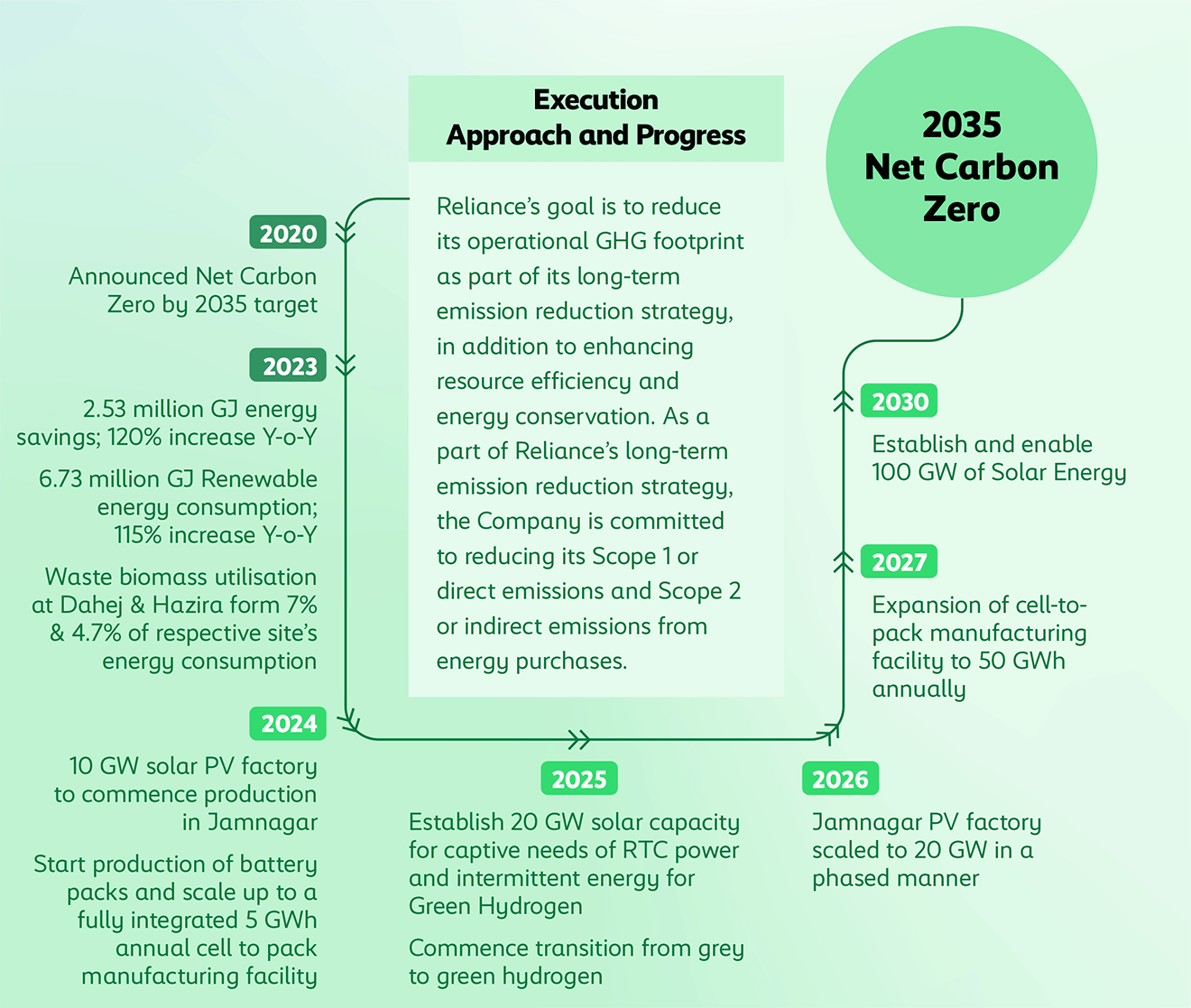
Clean Energy Transition
In 2021, Reliance announced an investment of `75,000 crore in building its New Energy business, led by the belief that large organisations have a responsibility to solve the biggest and most complex problems facing humanity. The investment will fund the setting up of Giga factories to manufacture and integrate critical components of the New Energy ecosystem, which will be one of the world’s largest such integrated renewable energy manufacturing facilities.
Reliance is making significant progress in developing the Dhirubhai Ambani Green Energy Giga Complex, which spans 5,000 acres in Jamnagar. This progress is a reflection of the Company’s strategy to establish Giga factories to realise its vision for the New Energy business. Reliance is on track to create a fully integrated manufacturing ecosystem, complete with secure and self-sufficient supply chains. The Company has invested in and formed partnerships with leading companies in the fields of solar power, batteries and electrolysers. These investments and partnerships will provide Reliance access to unique technology know-how and talent, enabling the Company to drive a disruptive transformation in the New Energy sector globally.
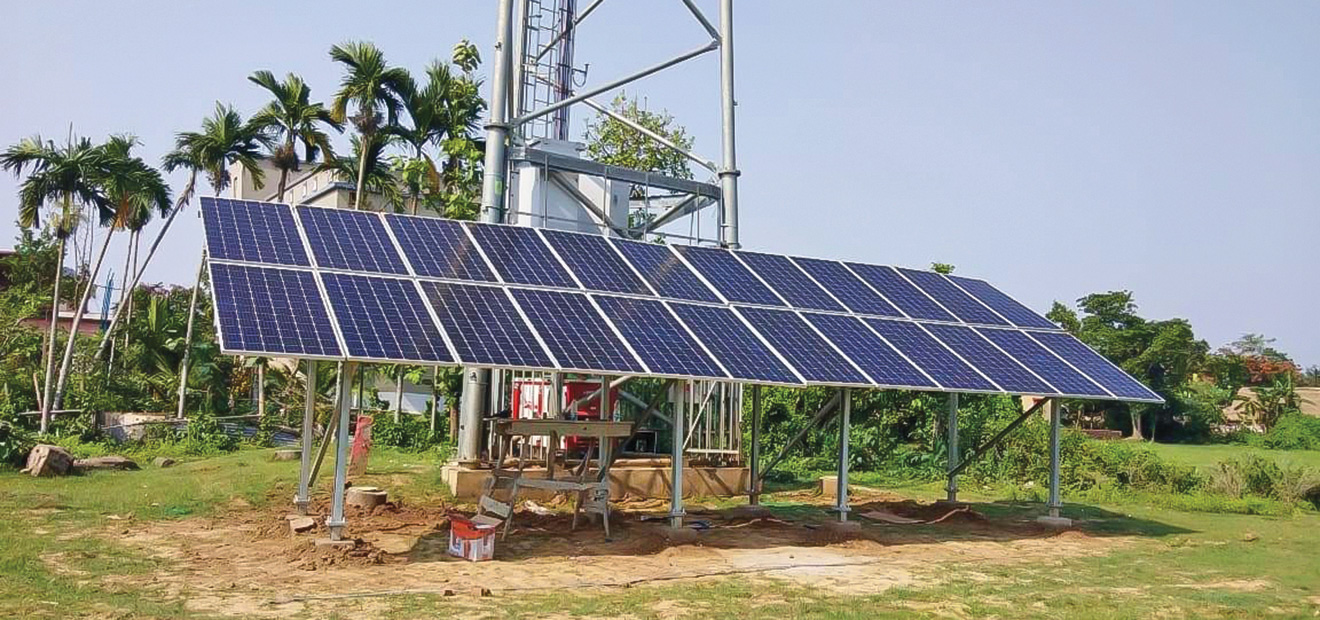
- Solar Photovoltaic Giga Factory Reliance acquired a 100% stake in REC Solar, a global leader with more than 25 years of experience in the industry. REC provides the highest efficiency solar panels with Heterojunction Technology (HJT). Reliance targets to increase the HJT module efficiency to 26% by 2026 from the current 23% and further improve it to 28% through innovations like perovskite-tandem cell technology. The Company also aims to extend the life of PV modules from 25 to 50 years. Reliance’s 10 GW solar PV cell and module factory at Jamnagar, based on REC technology, will commence production by 2024. The Company aims to scale the plant to 20 GW annual capacity in a phased manner by 2026.
- Advanced Energy Storage Giga
Factory: Batteries are integral to
providing long-duration energy
storage for grid-scale renewable
energy. They are also critical
to promote Green Mobility
and stationary applications for
residential and commercial use.
Reliance has stated its bold
ambition to create an end-to-end
battery ecosystem as part of its
efforts to build Net Carbon Zero
operations. The Company has
formed strategic partnerships
with Lithium Werks, Faradion and
Ambri, each of them being an
industry disruptor with superior
chemistry, leading to better
performance. Over and above,
with little or no dependency
on noble metals, these
solutions are backed by supply
security. The Company’s deep
understanding and knowledge
of chemistry and materials will
add to its competitive advantage
in setting up a world-scale
battery manufacturing facility.
The Company aims to start
production of battery packs and
scale up to a fully integrated
5 GWh annual cell-to-pack manufacturing facility by 2024.
Reliance plans to further scale
this capacity to
50 GWh annually by 2027. - Electrolyser Giga Factory
Reliance is among the largest
global producers of Grey
Hydrogen. The Company has
partnered with Stiesdal to reduce
costs and commercialise their
Pressurised Alkaline Electrolyser
technology. Additionally,
Reliance is in advanced talks
with other leading electrolyser
technology players globally
to establish a Giga-scale
electrolyser manufacturing
facility in Jamnagar. Reliance
will leverage its complementary
skills in engineering, operations,
seawater desalination, digital twin
expertise, and indigenous balance
of plants to complement its
partner’s technological innovation
in stack manufacturing, enabling
the delivery of Green Hydrogen
at the lowest cost. After
proving cost and performance targets, the Company aims to progressively commence transition from Grey to Green Hydrogen by 2025. - Fuel Cell Giga Factory Reliance has plans to set up a Giga factory for fuel cells which are set to gradually replace internal combustion engines in the future. These engines can power various types of vehicles, including cars, trucks, and buses. Additionally, they can be used in stationary applications to power data centres, telecom towers, emergency generators, microgrids, and industrial equipment.
- Power Electronics Giga Factory Power electronics is a critical component that links the entire value chain of Green Energy. With investment in Power Electronics Giga factory, Reliance is developing significant capabilities in designing and manufacturing power electronics and software systems. This initiative is being integrated with the Company’s existing strengths in Telecommunications, Cloud Computing, and IoT platforms, enabling a more comprehensive approach to developing New Energy solutions.
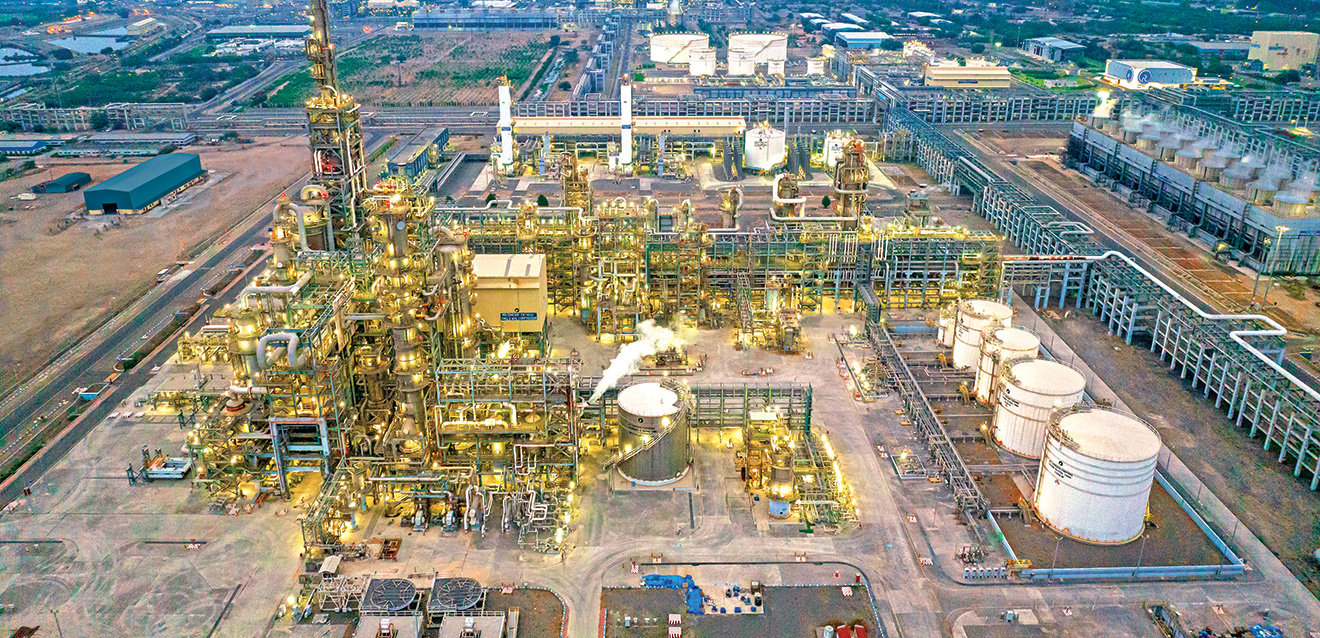
Making CO2 a recyclable resource
Reliance is fully committed to the transformation of CO2 into a recyclable resource, thereby fostering a sustainable future. By prioritising innovation, the Company is actively engaged in the exploration of advanced technologies that effectively convert CO2 into valuable products.
Reliance’s investments in carbon capture and utilisation technology will play a pivotal role in utilising CO2 as a valuable resource instead of releasing it into the atmosphere. The Company continuously explores novel catalytic and electrochemical transformations to leverage CO2 as a valuable feedstock, paving the way for the production of high-value chemicals and materials.
At Jamnagar complex, the Company is actively working towards the utilisation of CO2 from highly concentrated streams from the gasification complex. Significant strides have also been made by the company in harnessing photosynthetic biological pathways, allowing for the conversion of CO2 emissions into high-value proteins, nutraceuticals, advanced materials, and biofuels.
Reliance is also considering Carbon Capture Utilisation and Sequestration (CCUS) pathways such as but not limited to synthetic fuels and chemicals, mineral carbonation in construction materials, algae cultivation for biofuels and food supplements, and other technology-led solutions.
A dedicated R&D team actively collaborates on national and international projects, aiming to fully unlock the potential of CO2 utilisation. Under the Company’s flagship programme, Algae to Oil, a ground-breaking technology has been developed that can transform sunlight, CO2 , and seawater into renewable bio-crude. This revolutionary technology holds immense potential for converting CO2 into valuable products, thereby contributing to the fight against climate change.
The R&D team has achieved significant
milestones, including the development
of a stable catalyst that efficiently
converts methanol and CO2
into
high-value
Di-methyl carbonate (DMC)
products. The process and catalyst
have been scaled up to the pilot stage.
Additionally, the team has patented a
sorbent-based circulating fluidised bed
process for concentrating CO2
from
dilute flue gases emitted by refineries
and power plants.
Replacing Transportation Fuel
Reliance aims to progressively replace transportation fuels with sustainable alternatives like clean electricity and hydrogen. By embracing these cleaner energy sources, the Company significantly reduces carbon emissions and promotes a greener transportation sector.
Additionally, Reliance is transitioning from traditional transportation fuels to chemical building blocks such as ethylene, propylene, and aromatics that are integrated with downstream derivatives. Furthermore, the New Energy and New Materials businesses are designed to complement traditional fuels with clean electricity and hydrogen, aiming to achieve an optimal mix of reliable, clean, and affordable energy and storage using solar, wind, and batteries.
To enable this transition, Reliance is collaborating with global partners to commercialise its world-leading proprietary Multi-zone Catalytic Cracking (MCC) Technology.
Towards Net Carbon Zero Operations
Reliance’s businesses have captive energy requirements that generate a significant base-load demand, supporting the Company’s objective to establish Giga-scale manufacturing operations. This captive demand reinforces the strategic direction supporting Reliance’s investment of `75,000 crore to create a fully integrated New Energy manufacturing ecosystem in Jamnagar. Upon validating the feasibility of this initiative at scale, Reliance is ready to double its investment to further scale up the manufacturing ecosystem. The Company aims to establish 20 GW of solar energy generation capacity by 2025, which will be solely utilised to fulfil the captive needs of round-the-clock (RTC) power and intermittent energy for Green Hydrogen.
The Company has made considerable headway in developing photosynthetic biological pathways to transform CO₂ at Jamnagar into high-value products.
In February 2023, the Company unveiled it’s first Hydrogen Internal Combustion Engine technology for heavy-duty trucks and buses. Reliance is also exploring hydrogen fuel cell technology solutions, and is partnering with auto manufacturers and others to create a sustainable future for transportation.
Reliance is committed to advancing bio-energy to meet its captive energy needs. The Company aims to further build on this by leveraging new and emerging technologies and innovations. In this regard, Reliance inaugurated Phase I of its Bio-Energy Technology (BET) Centre in Jamnagar on August 15, 2022, the day India celebrated its 75th Independence day. The Company has already begun using biomass extensively as a fuel to produce green energy at scale. Within just one year, Reliance has replaced almost 5.3% of energy consumed at its Dahej and Hazira sites with green power and green steam. The Company is confident that initiatives like these, combined with the transition to renewable power for its O2C assets, will accelerate its journey towards becoming Net Carbon Zero.
